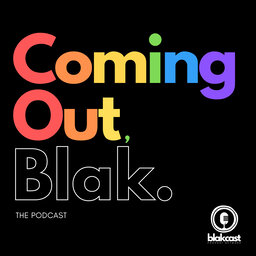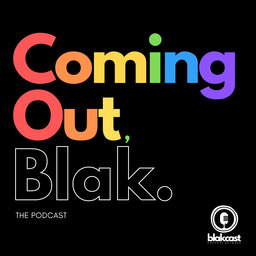Reintroduction: Joining the BlakCast Network
This week Courtney and Matika announce that Coming Out, Blak has joined the Blakcast Podcast Network!
In light of this partnership, the pair reflect on the journey of the podcast so far and summarise their coming out journey for new listeners.
In 1 playlist(s)
Coming out, Blak
Coming out, Blak is a podcast dedicated to supporting and celebrating First Nations mob in the LGBTQ…Social links
Follow podcast
Recent clips

Work Horror Stories!
40:47

KIMBERLEY ★ BLAK ★PRIDE ★
35:45

Witchy Wisdom: Navigating Gender Fluidity and Self-Care with Allira Potter
41:28
 Coming out, Blak
Coming out, Blak